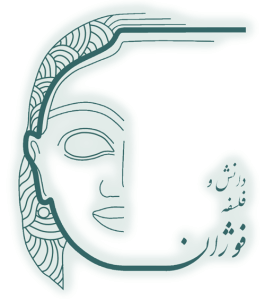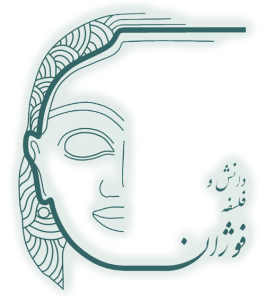Meaning of Life
An Interview with Professor Michael Hauskeller
Date Published
- Date: 4th, Dec 2020
Published on
- Anthropology and Culture (in Persian) https://anthropologyandculture.com/author/shahgordi/
- Academia (in English) https://tehran.academia.edu/MasoumeShahgordi
Interviewee
- Michael Hauskeller
- University of Liverpool
- https://en.foujaninstitute.com/2022/02/01/michael-hauskeller/
Interviewer
- Masoume Shahgordi
- Researcher in Philosophy of Religion, Philosophy of Gender and Sexuality
- Azad University, Science and Research Brand, Tehran
- Tehran University
- https://en.foujaninstitute.com/2022/03/24/masoume-shahgordi/
- Hi everyone. Thank you for joining us here today. It’s my great pleasure to be the host for another distinguished philosopher today, Professor Michael Hauskeller. Hi professor, and thank you so much for accepting my invitation to this session. Please accept our warmest welcome here and today! Now, my first question would be about the meaning of life, please.
Okay, there’s an important distinction to be made between meaning “of” life and meaning “in” life.
If we talk about the meaning of life, we’re talking about something that I think we cannot really know. We’re assuming that there is some kind of purpose to our existence, and we want to know what that purpose is. And in order for that to make sense, we need to assume that there is a god or some kind of planning, some kind of intention to our existence and that only makes sense if there is a god.
Now, if we want to assume that there is a God who has a plan, who brought you, who created us for a particular purpose, then, of course, that’s the question how do we know what God’s plans are? All right! How do we know what God’s purpose is? There is one question it seems to me that we cannot really know that.
Second, even if we know that, I’m not convinced that it would help us to find meaning in life, you know. So, for instance, we could imagine, first of all, we could imagine a God who has created us for a particular purpose. For instance, he could want to amuse himself by seeing us suffering, right! Just as a possibility. Now, that would be a purpose. Let’s say we found this purpose! We know that’s what we are here for. But that wouldn’t probably make our life more meaningful.
We wouldn’t feel better about ourselves if that is the purpose of our lives. Now say this is not such a terrible purpose. But there’s something else like we’re here in order to glorify God and uh his creation even then this would not necessarily make our life more meaningful. We would have a purpose, right, but perhaps we’re not happy with that purpose. Perhaps we want to do something else with our lives. So, as long as this is somebody else’s plan, even if that somebody else is God, it doesn’t necessarily make our life, experientially speaking, that is from our experience, more meaningful.
That is why I said you need to distinguish between the meaning “of” life and the meaning “in” life. Now meaning in life is the question of what makes our lives meaningful, right?
A particular life. And there are various. There’s a lot of discussion about that, and most philosophers think that we need to connect to something that is objectively valuable. For instance, engage with great art or be a very moral person or do something that realizes objectively existent values and that is supposed to explain why we don’t find the life meaningful of someone who spends their life say I don’t know watching daytime television all day and seem to be perfectly happy with it.
Most people would say, well, that is not a really meaningful life. Right? But the problem with this connection to objective values is, of course, that it’s difficult to see what makes a value objective? How do we get to the objectivity of those values, right? Because in order to find something valuable, we first need to value it ourselves. It doesn’t make any sense to say this is objectively valuable, but I and nobody else value it. So if there’s no valuing, then there cannot really be a value!
Does that make sense? Do you understand where I’m going with this? And so the point I’m trying to make here it seems to me that meaning in life should be understood more democratically, in a more open way taking into account the various different preferences and lifestyles people have. So what makes life meaningful for me is not necessarily what makes life meaningful for you! They can be different things, and it doesn’t have to be a grand purpose. We don’t have to be Picassos or Einsteins or Mother Teresas in order to have a meaningful life. So everyone can have a meaningful life if they have, I don’t know if they have love, friendship, passion, things to care about. These things matter, you know.
- Thank you very much, professor. We can go to the next question. The next question is about death and its meaning; Does it add any value to our lives, to our living? I think we have always been educated on various kinds of experience, education, learning, but in none of them, death was included, whereas thinking of death can have some beneficial and worthy aspects for life itself.
I’m not entirely sure whether I’ve understood the question correctly, but I can say this, there is a common view, widespread view that death is the greatest evil, right? There cannot be a greater evil than death, and from that, it would follow that we have to try to prevent death as much as we can. So it’s the highest priority we have, and not only with respect to our common ordinary lifespan, that is trying to prevent people from dying, before their time, before their natural lifespan ends, but it’s possible to get rid of mortality altogether, right. That is the transhumanist goal: to overcome the human condition, and one important aspect of that is to extend our lifespans indefinitely. To find out what makes us age, and then do something about it. So we don’t have to age anymore, we can stay forever young, and we will probably die at some stage because we will still be vulnerable to accidents, and things like that, but you won’t have to die anymore, and those who argue that we should make this a priority and use modern technology, already existing technologies and hopefully soon to be developed technologies to combat ageing and death, those also think that our life is not really meaningful before we have achieved that before we can live on indefinitely. And the reason for that is that they argue that there are so many things we might want to do, that we cannot do because we have to die. So if we had an indefinite lifespan, we could fulfil all those plans. And that would make our life meaningful.
But it seems to me that if our life cannot be meaningful as it is now, with our current limited lifespan, with our current, whatever it is 70 or 80 years, then an eternal life or indefinitely extended life wouldn’t be any more meaningful. If this life cannot be meaningful, why should a 300 year spent life be more meaningful or a thousand years? So that doesn’t make much sense to me, and it would also have the implication that no one has ever lived a meaningful life; if death or mortality stands in the way of meaning, then no one who has ever lived a meaningful life. This seems to be counterintuitive, so to answer your question I think that our mortality doesn’t have anything to do with whether or not we have a meaningful life.
- Okay, thank you, thank you very much, professor. Okay, do you think that Transhumanism will be a successful project?
Transhumanists’ aim is to overcome humanity. To become better than merely human. Now your question is, do I think that this is going to be successful? That we will overcome our humanity? I don’t know. I think that many of the expectations are overblown. I don’t think, if it’s going to happen, it is not going to happen anytime soon, but on the other hand, of course, we develop, that is, we are in the process of evolution, constantly. And, there’s no saying what will happen and how we will develop in the next, I don’t know, ten thousand, a hundred thousand years, but I don’t think that within a few decades which is the common prognosis we will no longer be human, we will be something else, will have merged with the machines or something like that. I don’t think that is going to happen.
- Okay, thank you very much. We can go to the third question, and it is about the difference between sex and gender. I don’t know when, from which time sociologists and anthropologists came to this new notion and preferred to recognize the difference between them, but now I can see a mainstream in non-binary gender or sexual identity, which wasn’t convenient in the decades before, so I ask you to explain it more to us. The difference between sex and gender for us now, please.
Okay. Well, the distinction between sex and gender is pretty old, at least seven decades. And you could say that terminology is not generally accepted, so different philosophers and thinkers use the terms sex and gender in different ways. But the most common distinction is sex is our natural biological distinction meaning sex describes being biologically female or biologically male. But if that were all, if there were nothing but sex, those biological distinctions, then it wouldn’t make much sense what we often say like, for instance, you should act like a man to people if a man doesn’t behave like a man. We might say act like a man or act like a woman; you’re not a real woman. You’re not a real man. And what does that mean, what do we mean when we say that, and what we mean is that we have certain standards, ideals, stereotypes if you will, about how a man or woman should behave, should actually be; this social construct of man and woman, this is gender: So, certain characteristics, certain attributes that you commonly associate with being a man or being a woman.
But of course, someone who has female sex can have traits and attributes that are commonly associated with men, and the other way around, right? But now an interesting development has taken place recently, namely the transgender movement, and so trans activists try to convince people that sex is nothing biological. There is no such thing as sex; meaning that biology doesn’t have any importance whatsoever. You are a man not because you have certain physical attributes, you are a man because you identify as a man, and likewise, you are not a woman because you have certain physical attributes. You are a woman because you identify as a woman, which means that if you have the body of a man, you can still be a woman if you identify as a woman. But the question is, of course for me is what does that actually mean to identify as a woman? And why would identifying as a woman make you a woman?
So you might say, well, if I identify as a woman, the reason for that is that I feel like a woman, inside! I’m a man on the outside, but on the inside, I feel like a woman. But for me, this raises a question: how do I know what it feels like to be a woman! Is there anything, in particular, that it feels like to be a woman? Do all women feel alike? Which for me is very, implausible! So it seems to me that there is most likely no such thing as feeling like a woman. I’m feeling like me, and you’re feeling like you, and perhaps we have certain characteristics that are more commonly found in women or more commonly found in men, but still feeling like a woman, there’s no such thing. So that leaves me baffled about the claim that a man makes, a biological male makes saying that he is, in fact, a woman.
And the same with what you mentioned, non-binary people! Non-binary people would say I’m neither a man nor a woman! And again, I am not sure I can get my head around, what that means. Again, the man, I could say this, right, as a biological male, I could say I declare myself to be non-binary now; that is: I don’t want to be identified either as a man or as a woman. So call me they. Or you could say the same, but our biology doesn’t change. Physically, we will remain exactly the same. Nothing changes. So now we’re non-binary. We are neither male nor female!
But what does it mean to be neither or both? It seems to me that these are physical attributes; sex is a physical attribute, so to break away from that and somehow use sex as an attitude of the mind, doesn’t make much sense. And interestingly, I mean the comparable case would be a white person who self-identifies as black; does that make sense? Not really because if you’re white, you’re white, right, and self-identifying as black doesn’t seem to make much sense. But it doesn’t make less sense than if a man self-identifies as a woman! Now interestingly, these cases are regarded very differently. A white person who identifies as black is not accepted; you cannot do that, but if you’re a woman and want to self-identify as a man, that is okay, and in fact, we all have to respect it, and this different treatment of those very similar cases is quite confusing.
- Okay, I saw you see this occasion as very complex and confusing! Thank you very much, professor.
Yes, you are very welcome.
- Thank you very much. Although it was abridged, it was precious. I will write down the conversation and get back to you. I hope we could have more sessions.
Okay. All right.
- Thank you very much. Thank you very much for accepting the invitation. Thank you very much for your time. Goodbye.







